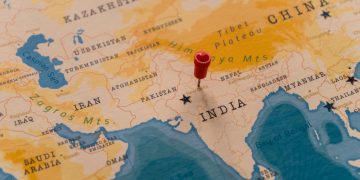New research from ISWAN regarding on board commercial merchant ships has provided insight into life on board and the benefits of social interaction for crew wellbeing.
Key findings
- Social interaction is important for seafarer health and encourages positive relationships between crew.
- Engaged and visible leadership is vital to support and provide ‘permission’ for crew to participate in social activities.
- Crew mood on board is highly susceptible to external influences.
- Separation of work and rest time on board is important.
- Favourite activities on board include barbeques, table tennis, basketball, gaming (e.g. Play Station 4), and celebrating occasions such as birthdays and religious holidays.
In the report released today, ISWAN details the findings from phase two of its Social Interaction Matters (SIM) Project and provides actionable guidance and recommendations for shipping and ship management companies, seafarers and other maritime stakeholders.
The SIM Project’s phase two research gathered first-hand accounts from the seafarers of 21 vessels from 10 different shipping companies operating worldwide, and examined the data to explore the impacts, drivers and barriers of social interaction whilst living and working on board. The research took place between November 2020 and January 2022 and coincided with the COVID-19 pandemic, the pervasive influence of which is demonstrated and explored throughout the report.
The findings highlight the importance of engaged and visible leadership both on board and ashore, to support and encourage crew participation in any social activities. Vessels in the SIM trials that supported their crew in this were able to mitigate the effects of long hours, numerous port calls and other factors that otherwise lowered mood. The report also states that more clearly established boundaries are needed between work and rest time on board.
The project has shown that social interaction promotes mental and physical health and provides an essential outlet for seafarers from their work on board. It enables all crew to get to know each other better which supports a caring environment that helps to develop a strong safety culture where people look out for each other
Dr Kate Pike, the SIM Project’s Research Lead, said.
The report adds that further research is needed into the effects of fatigue and tiredness, and their impact on seafarer mental health. ISWAN plans to continue the development of SIM as a long-term project for seafarer wellbeing, starting with a controlled evaluation of the effectiveness of the project’s guidance and recommendations which ISWAN hopes will lead to its establishment as a continuing resource for the sector.
I am delighted to see the continuation of this vital work in recognising the importance of social interaction to the wellbeing of seafarers. It is important to see the recommendations from phase one put into action and we have already seen that small steps can have huge impacts, such as having a designated wellbeing ambassador on board
mentioned Katy Ware, Director of UK Maritime Services & Permanent Representative of the UK to the IMO, Maritime and Coastguard Agency (MCA).
Recommendations
#1 Social Ambassador: The shore-based leadership teams and/or senior officers on board should assign a Social Ambassador to help manage activities. All leadership should encourage crew to engage with this Ambassador and help them to recognise the advantages of creating this role on board. Ideally, the Ambassador should volunteer for the role or be voted as suitable by their peers.
#2 Nationality: Consider the crew’s cultural mix which can determine the types of activities they like to engage with. When a Social Ambassador is nominated, the shore based management teams should help to equip them with the necessary skills for this role and encourage them to ask for suggestions and ideas to understand what the crew enjoy doing in their rest time.
#3 Engaged leadership: Senior officers should be supportive of developing an on board culture that encourages social interaction. All leadership teams, both on board and ashore, should be encouraged to regularly discuss the wellbeing of the crew and recognise its importance in the overall performance of the vessel – particularly in relation to crew harmony, cohesion and ultimately safety.
#4 When to initiate activities: Activities must take the vessel’s voyage plan into account and be organised when they can have the most impact to lift the mood on board, for example, following an inspection or port call. Plan accordingly and invite the rest of the crew to comment on the suggestions. Having a work planner is considered essential for crew who are well used to thinking ahead. A social planner will be a natural extension of this and will help to generate motivation for events and avoid crew missing opportunities to connect.
#5 Compliance with company policies: Whilst selecting any of the activities suggested below, always ensure that they comply with your company policies beforehand. Not all of the activities maybe suitable for your vessel but many can certainly be adapted to suit most circumstances.

































































